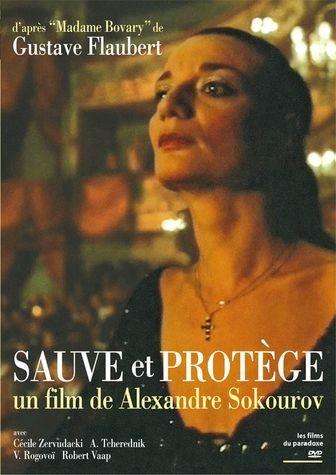Quote:
L’Intrus opens to a shot of the Franco-Swiss border as a border guard performs a customs check and inspection of a random vehicle with the aid of a contraband-sniffing dog. The seemingly mundane image of frontier, wilderness, and deception provides a curiously appropriate introduction into the Claire Denis’ impenetrably fractured, enigmatically allusive, otherworldy, and indelible metaphysical exposition into the mind of an emotionally severe, morally bankrupt, and profoundly isolated heart transplant patient named Louis (Michel Subor). Idiosyncratically unfolding in elliptical, often reverse chronology (with respect to the heart surgery) through the lugubriously fluid intertwining of Louis’ alienated existence and deeply tormented subconscious, the film is a fragmented and maddeningly opaque daydream (or perhaps more appropriately, a haunted nightmare) of the price exacted by his disreputable past, estranged relationships, hedonism, and instinctual quest for survival: his inability to reconcile with his only son and his family; his sexually motivated, yet emotionally distant relationship with a materialistic pharmacist; his dubious, transcontinental past (a suppressed history that may have included murder). Perpetually followed by a beautiful, enigmatic sentinel (Katia Golubeva) – or conscience – who seems to have been instrumental in obtaining his new heart, what emerges is an indelible, elegiac, and poetically abstract dreamscape through the wondrous, alien terrain of unreconciled (and irreconcilable) personal history, unrequited longing, and haunted memory.Read More »
Philosophy
-
Claire Denis – L’intrus AKA The Intruder [+Extras] (2004)
2001-2010Claire DenisDramaFrancePhilosophyPhilosophy on Screen -
François Caillat – Foucault Against Himself [Subbing Copy] (2014)
2011-2020DocumentaryFranceFrançois CaillatPhilosophy“Don’t ask me who I am, and don’t tell me to remain the same.” —Michel Foucault
From the history of madness, to sexuality and pleasure in classical antiquity, to the law and penal institutions, the breadth of Michel Foucault’s thought was astonishing.
One of the leading intellectuals of the 20th century, Foucault bridged the roles of intellectual and activist, attaining the highest honours of the French academy while using his position to attack the very institutional power that gave him a platform.
Divided into four chapters, FOUCAULT AGAINST HIMSELF focuses on Foucault’s critique of psychiatry, his work on the history of sexuality, the growth of his radicalism arising from his research into the French penal system, the nature of knowledge and underlying structures of human behavior, and his immersion in American counter-cultural movements—in particular the resistance to current social structures that he found among sexual minority communities in San Francisco.Read More »
-
Jean-Marie Straub – L’aquarium et la nation (2015)
2011-2020ArthouseFranceJean-Marie StraubPhilosophyA silent aquarium with numerous fishes
then the same aquarium with musicRead More » -
Gert de Graaff – De zee die denkt AKA The Sea That Thinks [+Extra] (2000)
1991-2000ArthouseGert de GraaffNetherlandsPhilosophyPhilosophy on ScreenThe Sea That Thinks is a 2000 Dutch experimental film directed by Gert de Graaff. The film makes heavily use of optical illusions to tell a “story within a story” revolving around a screenwriter writing a script called The Sea That Thinks. The script details what is happening around him and eventually begins to affect what happens around him.Read More »
-
Aleksandr Sokurov – Spasi i Sokhrani aka Save and Protect (1989)
1981-1990Aleksandr SokurovArthousePhilosophyRussiaQuote:
A retelling of Gustave Flaubert’s Madame Bovary as a surreal story of universal suffering, the film emphasizes the heroine’s internal transformation as she slowly loses her grip on reality. Her erotic fascination with rich clothing and her almost childish desire to seduce and to be lost in passion is brilliantly contrasted with the small-town life that leaves Emma tragically isolated in her passionate attempt to bridge the gap between spirituality and sensuality.Read More » -
Jean-Marie Straub – La madre (2012)
2011-2020ArthouseJean-Marie StraubPhilosophySwitzerlandLa madre (The Mother).3rd version. 2011. Switzerland. Dir. Jean-Marie Straub. Based on Dialogues with Leucò, by Cesare Pavese. With Giovanna Daddi, Dario Marconcini. In Italian. 20 min.Read More »
-
Francoise Wolff – Jacques Lacan Speaks (1971)
1971-1980BelgiumDocumentaryFrancoise WolffPhilosophyPhilosophy on ScreenJacques Lacan (1901-1981) is widely regarded as one of the most influential psychoanalysts of the 20th century, one whose work has refashioned psychiatry both as a theory of the unconscious mind and as a clinical practice. His seminars and writings have also had a widespread influence throughout the humanities and social sciences, especially in education, legal studies, literary and film studies and women’s studies.Read More »
-
BBC – Human, All Too Human: Nietzsche, Heidegger, and Sartre (1999)
Documentary1991-2000BBCPhilosophyPhilosophy on ScreenUnited KingdomBBC documentaries on 3 existentialist philosophers – Neitzsche, Heidegger and Satre. The rip quality is not great, but highly watchable and the standard of the documentaries is top notch featuring a number of highly respected academics plus Will Self.Read More »
-
King Vidor – Truth And Illusion: An Introduction To Metaphysics (1965)
1961-1970ExperimentalKing VidorPhilosophyPhilosophy on ScreenUSAKing Vidor wrote:
“It started when I simply wrote a narration that interested me and challenged myself to fit it to a film, using existing objects in nature, without animation techniques of any kind. I did the photography myself for very little money….It represents an almost abstract attempt to illustrate philosophical thoughts and ideas with strictly photographed—not manufactured—images. What, it asks, is truth, and what is illusion? It draws its examples from obvious things like the movies’ illusory ‘motion,’ and the way railroad tracks seem to converge to a point on the horizon.”Read More »









